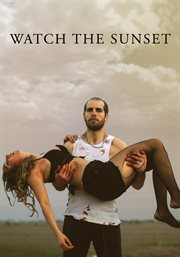Review by Booklist Review
Beginning in 2018, Row's (White Flights, 2019) stupendously good novel portrays the Wilcoxes, a Jewish family from the Upper West Side. There's domineering Naomi, a famous climate scientist; Sandy, Naomi's husband, a meek lawyer; their son, Patrick, a Buddhist and quantum computing expert; and their daughter, Winter, an overworked immigration lawyer engaged to Zeno, who is undocumented. The family has splintered over two traumas. Naomi revealed that her father was Black, turning this in part into a novel about passing. Then, after this revelation, Bering, the youngest child, left to become a peace activist in the West Bank, where she was murdered by an Israeli sniper. Like Franzen's The Corrections (2001), this is a family saga with a global perspective, sweeping across borders and time, from Israel to Chiapas to the northeastern U.S., from the utopian communes of the 1970s to the present, and exploring the impending climate disaster, colonialism, race, identity, and wealth, along with some metafictional musing. Each character's story is a fascinating portal into contemporary life, adding up to a deeply moving, wonderfully engaging, and truly remarkable novel of the times.
From Booklist, Copyright (c) American Library Association. Used with permission.
Review by Publisher's Weekly Review
Critic Row's magisterial latest (after the essay collection White Flights) traces the complex dynamics of a New York City family on a geopolitical scale. In 2000, Wilcox patriarch Sandy, a lawyer, narrowly avoids disbarment after unwittingly aiding a client of fraud. A year later, his wife, Naomi, a geophysicist at Columbia University, reveals that her biological father was Black. Then, in 2003, their youngest child, Bering, is fatally shot by an Israeli Defense Force sniper while protesting the Israeli occupation of Palestine's West Bank. After Bering's death, her oldest brother, Patrick, goes to Nepal to become a monk. Sandy and Naomi's marriage, meanwhile, has been faltering since the late 1970s, when they founded a Zen monastery in Vermont, and following a failed suicide attempt a decade after Bering's death, Sandy leaves Naomi and retreats to Vermont, where he takes a vow of silence. Middle child Winter, a 20-something immigration lawyer, is marrying Zeno, an undocumented citizen, and wants nothing more than the family to be together at their wedding. Winter and Naomi also butt heads, big time, on race (Naomi insists they're white; Winter identifies as multiracial). As the Wilcoxes reckon with the limits of what they can bear, Winter's request proves tough to meet. Moments of levity draw the reader in (Sandy on shaving his head: "I look like Mr. Clean, he thinks, allowing himself one glimpse in the mirror, or Yul Brynner"), and the author pulls off many moving metafictional moments (Sandy, again, sensing the text of Row's novel: "He feels it embrace him, one animal embracing another; it smells like wet fur"). This is Row's best work yet. (Mar.)
(c) Copyright PWxyz, LLC. All rights reserved
Review by Library Journal Review
In the early 2000s, Naomi Wilcox informed her children that their biological father was Black, shattering their Jewish, Upper West Side, New York, family; college-age daughter Bering promptly became a peace activist on Palestine's West Bank and was killed by Israeli sniper fire. Now daughter Winter is getting married and hopes to bring her remaining family together again. From Whiting Award winner Row; with 50,000-copy first printing.
(c) Copyright Library Journals LLC, a wholly owned subsidiary of Media Source, Inc. No redistribution permitted.
Review by Kirkus Book Review
A New York Jewish family confronts its catastrophic past. In his latest novel, Row introduces us to the Wilcox family, a sprawling, dysfunctional group traumatized, in various ways, by several key moments in their past. When their mother, Naomi, informs them that her biological father had been Black, Patrick and his sisters, Winter and Bering, are horrified that she's been keeping that secret for so long. Bering winds up traveling to Palestine as a peace activist, where she's killed by an Israeli sniper. Winter becomes an immigration attorney; Patrick flees to Germany after a stint as a Buddhist monk. To reel off these plot details, however, is to give a poor impression of Row's deeply ambitious, genre-defying work, which hops back and forth in time, shifts between various points of view, and incorporates a massive amount of politics and theory on race, Zen Buddhism, climate change, the history of Israel and Palestine, and, among other things, the novel itself as a literary form. This is not a novel to be devoured in one gulp. "This family has never had a coherent story to tell about itself," Winter says one night. "Like an egg cracked over a pan," Row writes, "the story spreads until it stops. It finds its boundaries by exhausting its materials." Much of the novel is told via dialogue: This is a book of discourse, in every sense of the word, and its happenings are told rather than shown. Characters speak to each other or to themselves at immense length, and we have access to their emails and texts. If the books seems overstuffed to the point of being overdetermined--one storyline involves the Zapatista uprising, for example--it's a testament to Row's talent to say that, somehow, he manages to tie it all together. A deeply ambitious saga that takes on many of the thorniest questions of 21st-century American life. Copyright (c) Kirkus Reviews, used with permission.
Copyright (c) Kirkus Reviews, used with permission.

